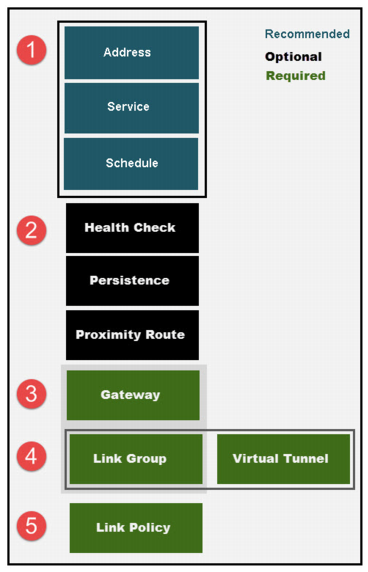Link load balancing configuration overview
The system has a configuration framework that enables granular link load balancing rules.
Figure 31 shows the configuration objects used in the LLB configuration and the order in which you create them. A
link policy specifies the source/destination/service matches to which the policy applies. You apply a link policy to a
link group or a
virtual tunnel.
The granular configuration of the gateway configuration includes health checks and bandwidth thresholds. The granular configuration of link groups includes load balancing methods, persistence rules, and proximity routes.
The granular configuration of virtual tunnels includes load balancing methods. In the virtual tunnel configuration, you can enable health check tests, but you do not use health check configuration objects.
Basic steps
1. Add address, service, and schedule configuration objects that can be used to match traffic to link policy rules. This step is recommended. If your policy does not use match criteria, it will not have granularity.
2. Configure optional features. If you want to use health check rules, configure them before you configure the gateway links. If you want to use persistence rules or proximity routes, configure them before you configure a link group.
3. Configure gateway links.
4. Configure link groups or virtual tunnels.
5. Configure the link policy. When you configure a link policy, you set the source/destination/service matching tuple for your link groups or virtual tunnels.


